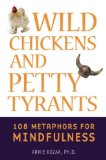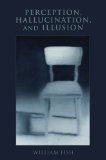March 22, 2009

Effective Intentions: The Power of Conscious Will by Alfred Mele (Oxford University Press, 2009) with a “Look Inside” preview available from Amazon.
(If the cover looks familiar it has the same photo as another recent Oxford Press book; however, the Oxford website shows a different cover.)
Product description – from the publisher:
Each of the following claims has been defended in the scientific literature on free will and consciousness: your brain routinely decides what you will do before you become conscious of its decision; there is only a 100 millisecond window of opportunity for free will, and all it can do is veto conscious decisions, intentions, or urges; intentions never play a role in producing corresponding actions; and free will is an illusion.
In Effective Intentions Alfred Mele shows that the evidence offered to support these claims is sorely deficient. He also shows that there is strong empirical support for the thesis that some conscious decisions and intentions have a genuine place in causal explanations of corresponding actions. In short, there is weighty evidence of the existence of effective conscious intentions or the power of conscious will. Mele examines the accuracy of subjects’ reports about when they first became aware of decisions or intentions in laboratory settings and develops some implications of warranted skepticism about the accuracy of these reports. In addition, he explores such questions as whether we must be conscious of all of our intentions and why scientists disagree about this. Mele’s final chapter closes with a discussion of imaginary scientific findings that would warrant bold claims about free will and consciousness of the sort he examines in this book.
Comments (0)
- new books,philosophy of mind
March 20, 2009

(I don’t know much about this book but like the title)…
Wild Chickens and Petty Tyrants: 108 Metaphors for Mindfulness by Arnie Kozak (Wisdom Publications, 2009)
Description from the publisher:
Product Description
Mindfulness is a process of self-inquiry directed at what is happening in the moment, a focus on experience as it occurs without inner commentary or judgment. Metaphors are indispensable to mindfulness practice. They motivate us, help us bring mindfulness into daily life, and show us how to use mindfulness as a tool for self-improvement. Their imagery helps anchor understanding and provides a bridge from concept to experience. This book presents 108 metaphors for mindfulness, meditation practice, self-change, acceptance, and other related concepts. Compiled by the author over a 25-year period, they employ imagery as diverse as the inner mute button, Earl Gray tea, and the bladder of Oliver Cromwell. Many are original; others are selected from the classic literature on Buddhism and mindfulness. Each is a node in a network of interweaving concepts that enliven the experience of mindfulness while alleviating stress, anxiety, and depression.
Book’s website includes an excerpt, blog, and more.
Comments (0)
- Uncategorized
March 18, 2009

Perception, Hallucination, and Illusion by William Fish (Oxford University Press, 2009) has a “Look Inside” preview at Amazon.
Product Description
The idea of a disjunctive theory of visual experiences first found expression in J.M. Hinton’s pioneering 1973 book Experiences. In the first monograph in this exciting area since then, William Fish develops a comprehensive disjunctive theory, incorporating detailed accounts of the three core kinds of visual experience–perception, hallucination, and illusion–and an explanation of how perception and hallucination could be indiscriminable from one another without having anything in common. In the veridical case, Fish contends that the perception of a particular state of affairs involves the subject’s being acquainted with that state of affairs, and that it is the subject’s standing in this acquaintance relation that makes the experience possess a phenomenal character. Fish argues that when we hallucinate, we are having an experience that, while lacking phenomenal character, is mistakenly supposed by the subject to possess it. Fish then shows how this approach to visual experience is compatible with empirical research into the workings of the brain and concludes by extending this treatment to cover the many different types of illusion that we can be subject to.
Comments (0)
- new books,philosophy of mind
March 17, 2009
More books with Kindle editions:
The Ego Tunnel by Thomas Metzinger
and Play: How It Shapes the Brain, Opens the Imagination, and Invigorates the Soul by Stuart Brown and Christopher Vaughan
Shortcuts, Tips & Tricks from Amazon Kindle’s Blog
— and more from GeekTonic (Minesweeper?)
Feedbooks has books that can be downloaded to the Kindle plus a way to turn RSS feeds into Kindle files that can be updated. I haven’t had a chance to try it yet but it sounds like it could be useful. (See “Help: Kindle” at Feedbooks).
A non-Kindle-related item:
Alltop now offers the ability to create a custom Alltop page at “MyAlltop”. (“http://my.alltop.com/mymindonbooks” is coming soon; got the account, just haven’t put anything there yet.)
Comments (1)
- reading
March 16, 2009

Subjects of the World: Darwin’s Rhetoric and the Study of Agency in Nature by Paul Sheldon Davies (U of Chicago Press, 2009).
Synopsis from the publisher:
Being human while trying to scientifically study human nature confronts us with our most vexing problem. Efforts to explicate the human mind are thwarted by our cultural biases and entrenched infirmities; our first-person experiences as practical agents convince us that we have capacities beyond the reach of scientific explanation. What we need to move forward in our understanding of human agency, Paul Sheldon Davies argues, is a reform in the way we study ourselves and a long overdue break with traditional humanist thinking.
Davies locates a model for change in the rhetorical strategies employed by Charles Darwin in On the Origin of Species. Darwin worked hard to anticipate and diminish the anxieties and biases that his radically historical view of life was bound to provoke. Likewise, Davies draws from the history of science and contemporary psychology and neuroscience to build a framework for the study of human agency that identifies and diminishes outdated and limiting biases. The result is a heady, philosophically wide-ranging argument in favor of recognizing that humans are, like everything else, subjects of the natural world—an acknowledgement that may free us to see the world the way it actually is.
Comments (0)
- new books,philosophy of mind,self






